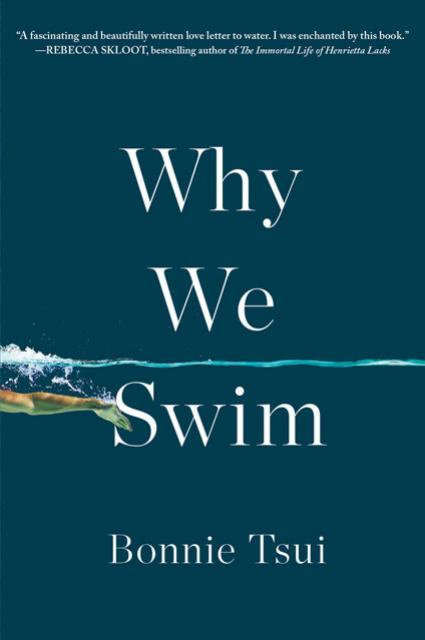Why We Swim by Bonnie Tsui

Author:Bonnie Tsui [Tsui, Bonnie]
Language: eng
Format: epub, pdf
Publisher: Algonquin Books
Published: 2020-04-13T17:00:00+00:00
10
Chaos and Order
Most people came to Baghdad on one-year assignments—a swimmer might be with the team for a couple of months, say, before cycling out, but then someone else would join. Over the two years that Coach Jay was stationed in Baghdad, his swimming roster grew to more than two hundred people.
Certain swimmers stood out, like the irrepressible force of nature that was J. P. Santana. A lively, squarely built man with a defiant streak, J.P. lost the lower part of his right arm from grabbing a high-voltage power line as a teenager. Though he’d learned to swim as a child, he was left with burn scars all over his body. “I was shy about getting back in the pool after that—afraid, really,” J.P. says. “I’d forgotten how to swim, so I was first in line when Jay opened the classes.”
His right shoulder muscles, scarred and less flexible than his left, made him wonder if he could get back to swimming at all. “Once I hit the pool, I started to swim desperately, afraid I would go straight to the bottom,” he remembers. “What I learned with Jay is that I need to find that balance—in swimming and in life.”
During the month of April in 2008—the “surge” in US military activity—the New Embassy Compound was not yet open. When things got hairy during a sustained period of shelling, the cultural affairs staff, including J.P. and Jay, had to sleep in the office, which provided more hard-shell protection than the flimsy, tin-can residence trailers. “We were without water for half a week, food was the same every day, and an Iraqi friend told me, ‘Now you see how it is for the middle class in Iraq,’” J.P. remembers. “But we were lucky. Our only concerns were: don’t get killed by a rocket, clean yourself with a handkerchief, and eat the same meal for a week.” Compared to what the troops were facing in the field or Iraqis in their everyday lives, he adds, “We were blessed.”
Being allowed back into their personal trailers was like being let out of prison. Being in the pool, then, felt like nothing short of exhilaration.
“Balance,” J.P. had told me, “in swimming and life.” The grim, weighty strictures of war make one long for a little levity. Jay himself was especially struck by the young soldiers who came in droves to the pool. Whether they were enlisted in official military service or under security contract, it was a different population of the world than he’d known in the past. “These were very hard young guys, accustomed to going on eighteen-hour missions,” Jay says. They’d come back to Camp Victory—the home base for all those combat, urban-patrol, and sniper-detail Marines—smelling of cordite, and they’d prop their weapons up. “What do you think was their favorite, can’t-miss TV program?” he asks me. “Gilmore Girls, of course.”
After swim practice, the military swimmers would get back into uniform. In a complicated place that was so reliant on hierarchy and social order, Jay began to think hard about the way that swimming stripped people down to their bare elements.
Download
This site does not store any files on its server. We only index and link to content provided by other sites. Please contact the content providers to delete copyright contents if any and email us, we'll remove relevant links or contents immediately.
Sea Survival Handbook by Keith Colwell(1796)
Deep by James Nestor(1789)
Fatal Storm by Rob Mundle(1787)
Breath by James Nestor;(1761)
The River by Peter Heller(1698)
Lonely Planet Australia by Lonely Planet(1676)
Discover Australia by Lonely Planet(1586)
Iced In by Chris Turney(1579)
Lonely Planet Maldives (Travel Guide) by Planet Lonely & Masters Tom(1427)
One Girl One Dream by Dekker Laura(1355)
Ten Degrees of Reckoning: The True Story of a Family's Love and the Will to Survive by Hester Rumberg(1346)
Looking for a Ship by John McPhee(1320)
Lonely Planet Australia (Travel Guide) by Lonely Planet & Lonely Planet(1309)
Chicken Soup for the Ocean Lover's Soul by Jack Canfield(1289)
South with the Sun by Lynne Cox(1222)
The Wave In Pursuit of the Rogues, Freaks and Giants of the Ocean(1217)
Marlinspike Sailor's Arts and Crafts by Barbara Merry(1207)
Diver Down by Michael Ange(1194)
The Golden Rules: 10 Steps to World-Class Excellence in Your Life and Work by Bob Bowman & Charles Butler(1159)
